
Ecoprod, a network composed of film-funding agencies, broadcasters, and environmental agencies, has launched sustainability as a driving force in the audiovisual sector in France. In 2014, the Centre National du Cinema (CNC) began investing € 6m per year in ecological sustainability projects. TV stations, such as France Télévisions, are now upgrading their news and sports studios with LED lighting.
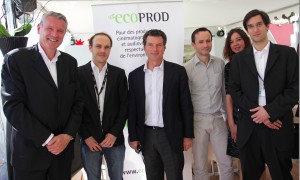 “This is a beginning”, says Olivier-René Veillon, Director of Île-de-France Film Commission, an Ecoprod member. “But we still have a lot to do to integrate sustainable development criteria in the funding system.” According to a study made in 2011, the French audiovisual sector is responsible for emitting approximately one million tons carbon dioxide into the atmosphere every year. About a quarter of it is attributable to filmmaking. For industry experts such as Olivier-René Veillon or Catherine Puiseux of TF1, this was the real reason for getting Ecoprod off the ground. Founded in 2009 with partners such as France Télévisions, the environment agency ADEME, and the welfare group AUDIENS, Ecoprod provides the Film and TV industry with ecological expertise. One of their first steps was to develop the Carbon Clap, a calculator that monitors a film or TV productionʼs carbon footprint.
“This is a beginning”, says Olivier-René Veillon, Director of Île-de-France Film Commission, an Ecoprod member. “But we still have a lot to do to integrate sustainable development criteria in the funding system.” According to a study made in 2011, the French audiovisual sector is responsible for emitting approximately one million tons carbon dioxide into the atmosphere every year. About a quarter of it is attributable to filmmaking. For industry experts such as Olivier-René Veillon or Catherine Puiseux of TF1, this was the real reason for getting Ecoprod off the ground. Founded in 2009 with partners such as France Télévisions, the environment agency ADEME, and the welfare group AUDIENS, Ecoprod provides the Film and TV industry with ecological expertise. One of their first steps was to develop the Carbon Clap, a calculator that monitors a film or TV productionʼs carbon footprint.
 In 2011, the Région Provence Alpes Côte d’Azur (PACA), the Pôle Média du Grand Paris, and the CNC came on board. “It is critical that the CNC be fully involved”, emphasizes Olivier-René Veillon. “Thanks to its new sustainable development criteria, the institution helps companies invest in new technologies. Studios and audiovisual technical service providers can receive financial support for as much as 40%–60% of the costs they incur in making environment-friendly investments. “We can also subsidize up to 70% of the cost of environmental studies, which includes energy audits“, advises Baptiste Heynemann, who heads the Innovation & Technical Industries Division at CNC. In 2014, about ten companies participated in this program to support investments in ecological sustainability to the tune of € 6m per annum.
In 2011, the Région Provence Alpes Côte d’Azur (PACA), the Pôle Média du Grand Paris, and the CNC came on board. “It is critical that the CNC be fully involved”, emphasizes Olivier-René Veillon. “Thanks to its new sustainable development criteria, the institution helps companies invest in new technologies. Studios and audiovisual technical service providers can receive financial support for as much as 40%–60% of the costs they incur in making environment-friendly investments. “We can also subsidize up to 70% of the cost of environmental studies, which includes energy audits“, advises Baptiste Heynemann, who heads the Innovation & Technical Industries Division at CNC. In 2014, about ten companies participated in this program to support investments in ecological sustainability to the tune of € 6m per annum.
 France Télévisions, an Ecoprod co-founder, adapted early on to energy efficiency. “We are trying to reduce the environmental impact of our infrastructure. For example, by investing in the energy efficiency of our buildings”, explains Sophie Delorme, Co-Director. “We’ve installed LED lighting in almost all our news and sports studios, and we are using low-energy lighting more frequently all across the board in our production output.”
France Télévisions, an Ecoprod co-founder, adapted early on to energy efficiency. “We are trying to reduce the environmental impact of our infrastructure. For example, by investing in the energy efficiency of our buildings”, explains Sophie Delorme, Co-Director. “We’ve installed LED lighting in almost all our news and sports studios, and we are using low-energy lighting more frequently all across the board in our production output.”
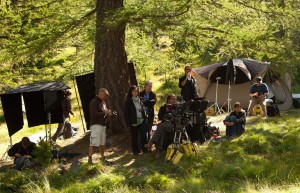 Among the French feature films that have already implemented green shooting practices is the 3D animated adventure film Miniscule by Thomas Szabo and Hélène Giraud. The production reduced it projected carbon footprint from 380 to 51 tons by shooting in a park so that the crew could travel to the set on foot or by bicycle. In total, the PACA region supported about 36 sustainable productions with financial incentives. The most recent production was the Catherine Deneuve starrer L’homme qu’on aimait trop (In the Name of my Daughter) by André Téchiné, which premiered at Cannes in 2014.
Among the French feature films that have already implemented green shooting practices is the 3D animated adventure film Miniscule by Thomas Szabo and Hélène Giraud. The production reduced it projected carbon footprint from 380 to 51 tons by shooting in a park so that the crew could travel to the set on foot or by bicycle. In total, the PACA region supported about 36 sustainable productions with financial incentives. The most recent production was the Catherine Deneuve starrer L’homme qu’on aimait trop (In the Name of my Daughter) by André Téchiné, which premiered at Cannes in 2014.
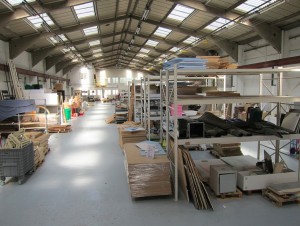 The workshops Ecoprod holds for production managers, lighting technicians, and other crew members have significant impact. A handful of experts impart their sustainability expertise and production experiences to newcomers at roundtables discussions. Ecoprod also launched a green charter for audiovisual companies that want to initiate sustainable production practices. “We are trying to sensitize the key players to strategic investments that will be required by law or technological changes in the future”, highlights the Ecoprod Coordinator Joanna Gallardo. Ecoprod is also working on CO2 quotation software based on the CNC cost estimate model. “We want to forge a direct link between the production budget and the carbon footprint”, stresses Joanna Gallardo.
The workshops Ecoprod holds for production managers, lighting technicians, and other crew members have significant impact. A handful of experts impart their sustainability expertise and production experiences to newcomers at roundtables discussions. Ecoprod also launched a green charter for audiovisual companies that want to initiate sustainable production practices. “We are trying to sensitize the key players to strategic investments that will be required by law or technological changes in the future”, highlights the Ecoprod Coordinator Joanna Gallardo. Ecoprod is also working on CO2 quotation software based on the CNC cost estimate model. “We want to forge a direct link between the production budget and the carbon footprint”, stresses Joanna Gallardo.
“The next step is to link our financing system to sustainability development issues”, points out Olivier-René Veillon. “This is the most important step, I think. But we haven’t gotten to that stage yet because we must improve our educational program for sensitizing producers to sustainable production practices. We still have a lot of work to do. It’s a permanent process.”




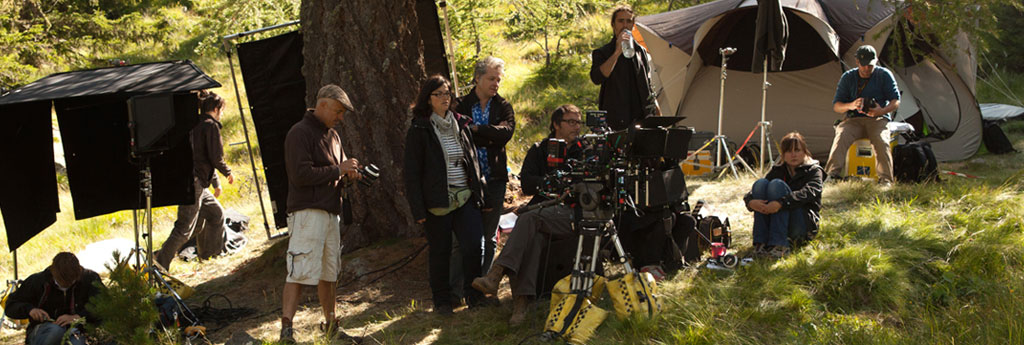








 Robert Redford
Robert Redford Hannes Jaenicke
Hannes Jaenicke Nic Balthazar
Nic Balthazar Nadeshda Brennicke, Actress
Nadeshda Brennicke, Actress Darren Aronofsky, Director, Noah / Jury President, 65th Berlin International Film Festival
Darren Aronofsky, Director, Noah / Jury President, 65th Berlin International Film Festival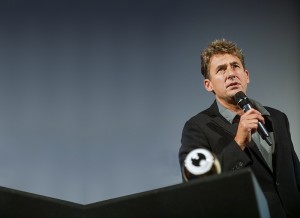 Tim Bevan
Tim Bevan Thekla Reuten
Thekla Reuten Rachael Joy
Rachael Joy Nikola Rakocevi
Nikola Rakocevi Nadja Schildknecht
Nadja Schildknecht Michael Bully Herbig
Michael Bully Herbig Lars Jessen
Lars Jessen Helen Hunt
Helen Hunt Douglas Trumbull
Douglas Trumbull Dieter Kosslick, Director Berlin International Film Festival
Dieter Kosslick, Director Berlin International Film Festival Benoit Delhomme
Benoit Delhomme Jeremy Irons
Jeremy Irons
Pingback: Green Production Gets Some Traction, Pre COP21 : The Confluence